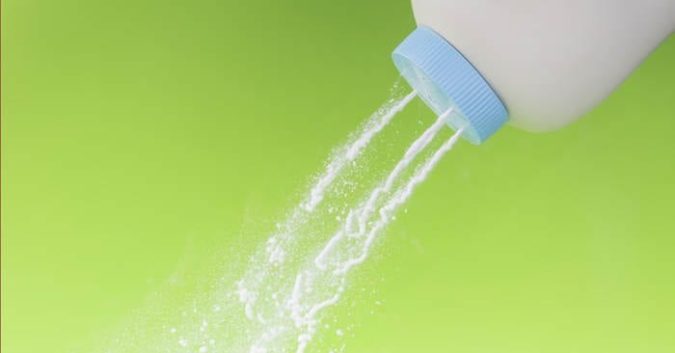When a Missouri jury awarded Jacqueline Fox’s family $72 Million in a landmark verdict against Johnson & Johnson’s talc-based baby powder and Shower to Shower®, it was the very first ruling of its kind. Now, as more and more Americans learn about the intricacies of the healthcare giant’s deceit, Johnson & Johnson (J&J) is fighting back against an enormous public swell of anger.
A statement released by J&J on Tuesday (February 23, 2016), stated that while J&J sympathizes with Fox’s family, “the verdict goes against decades’ worth of sound science proving the safety of talc as a cosmetic ingredient in multiple products…”
But the question is: What science is Johnson & Johnson referring to? The first official study that linked talc products to ovarian cancer was published in 1982 by Dr. David Cramer, then-professor of Harvard Medical School. And since then, over a dozen additional studies have come out concluding the same thing: that using talc-based products (such as J&J’s baby powder) poses an increased risk for ovarian cancer in women. In fact, the amount of scientific data linking the two is substantial and difficult to deny. Other studies demonstrate that using talc-based baby powder can increase a woman’s chance of getting ovarian cancer by as much as 30 percent. Yet another concludes that out of the 21,000 new cases of ovarian cancer diagnosed each year in the U.S., a resounding 10 percent – or 2,100 cases – can be traced back to talcum powder use.
The Uphill Battle Women Have Faced for Generations
Jacqueline Fox was diagnosed with ovarian cancer in March 2013 and died last October. Fox’s lawsuit claimed that the talcum powder in Johnson & Johnson’s Baby Powder and Shower to Shower® is carcinogenic. And, worst of all, their suit claims that the company – Johnson & Johnson – has known about the risks for decades.
Fox represents just one woman out of thousands whom have been harmed by Johnson & Johnson’s talc-based powder products. Whole generations of women have used J&J baby powder and Shower to Shower® for daily feminine hygienic purposes, in an effort, medical experts say, to help keep them “feeling fresh.”
Fox’s lawyer, Jere Beasley, claimed that these were the very products that ultimately caused the plaintiff’s death. In a recent CBS special investigation, Beasley said, “Johnson & Johnson knew of the association between talc and ovarian cancer starting back in 1979.”
Dr. Daniel Cramer, who now practices at Brigham and Women’s Hospital in Boston testified as an expert for the plaintiff’s family. Cramer, who has built on his findings since 1982, published an updated study in December 2015 that showed, quite plainly, an increased risk of ovarian cancer. His research echoes what 3-decades worth of additional science has been saying all along: that talcum powder, when used in close proximity to the vagina, can enter the vagina and travel up the fallopian tubes to the ovaries, where loose talc particles can lodge themselves for decades. Cramer stated:
“There have been more than 20 epidemiologic studies – and the majority of these found an elevated risk [of ovarian cancer].”
Beyond the Science: Internal Documents Prove Johnson & Johnson Knew
Perhaps the most damning evidence of all against Johnson & Johnson is a document – a letter – from a consultant whom Johnson & Johnson hired in 1979. The consultant investigated and advised J&J on the link between ovarian cancer and talc. The consultant stated in his letter that Johnson & Johnson ran the risk of becoming the new face of public contempt, much like a second-coming of Big Tobacco, if it didn’t warn consumers about the risks associated with talc. The 1979 document states:
“[Denying the risks] could mean the talc industry will be perceived by the public like it perceives the cigarette industry: denying the obvious in the face of all evidence to the contrary.”
The Missouri jury’s verdict ruled that Johnson & Johnson made a conscious decision not to warn the consumers who bought their talc-based products that they were, in fact, using a potentially dangerous product. As a result, Johnson & Johnson was ordered to pay Fox’s family a total of $72 Million dollars – $10 Million of which is compensatory, and $62 Million of which is for punitive damages (or, damages charged to a defendant for the purpose of punishment).
Marvin Salter, Jacqueline Fox’s son, who filed the lawsuit on behalf of his deceased mother, told CBS that he stood up to the $272-Billion-dollar healthcare giant not purely on behalf of his mother, but for the thousands of women who have been using talc products and are now at increased risk of being diagnosed with deadly, fast-moving ovarian cancer.
